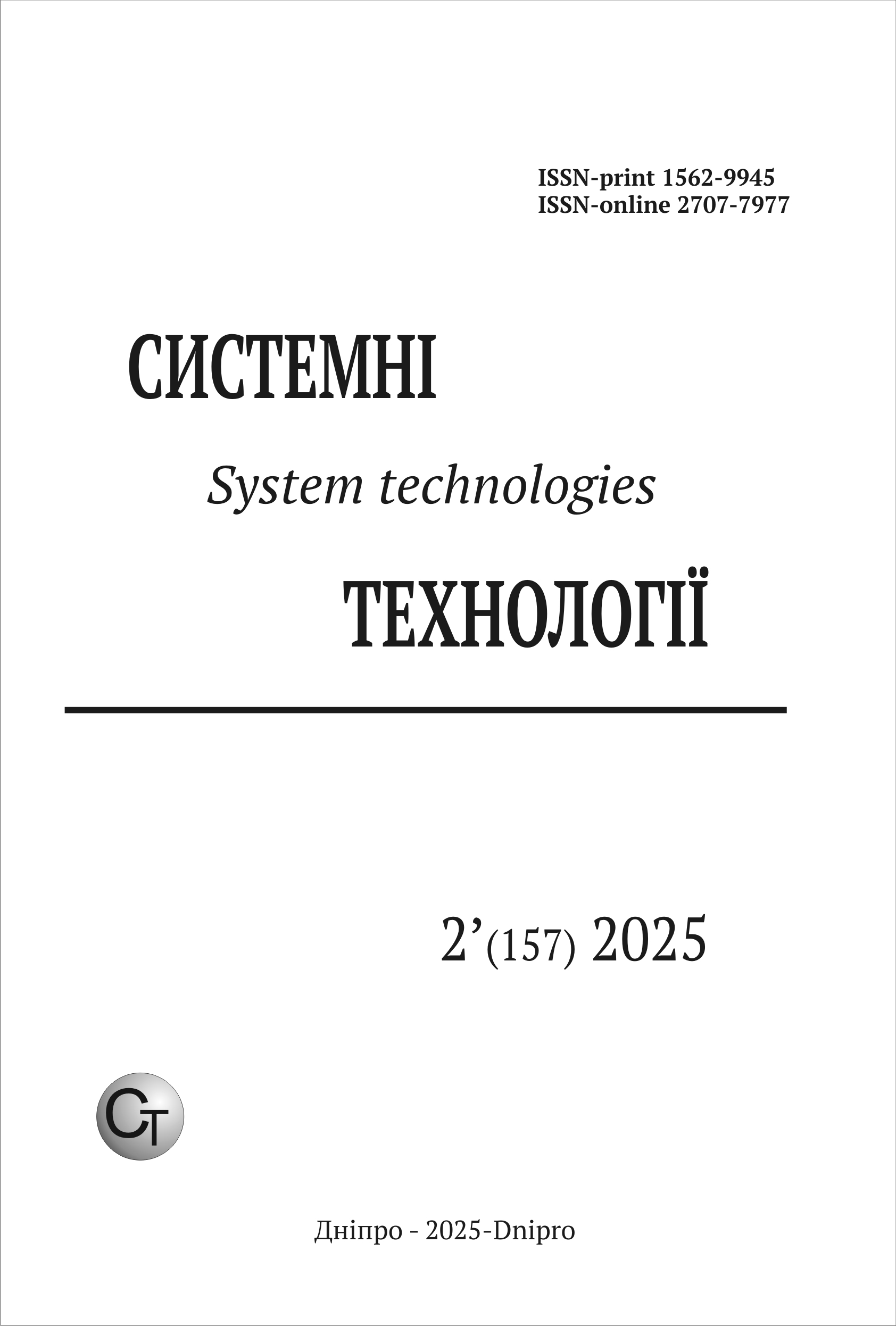Mathematical model and algorithm for compensation of systematic errors of coordinate measuring machines
DOI:
https://doi.org/10.34185/1562-9945-2-157-2025-11Keywords:
coordinate measuring machine, systematic errors, mathematical model, error compensation, geometric errors, thermal influences, correction algorithm, multifactor analysis, measurement accuracy, metrological support, control systemAbstract
Modern coordinate measuring machines (CMMs) are widely used for high-precision measurement of geometric parameters of parts across various industries. However, achieving maximum measurement accuracy is complicated by the presence of systematic errors caused by geometric guideway imperfections, thermal deformations, kinematic inaccuracies, and inter-axis influences. Ignoring these factors leads to significant distortion of the obtained coordinate data and, consequently, reduces the reliability of inspection results. The relevance of this research is driven by the need to improve measurement accuracy through the development of effective methods for compensating systematic errors at the stage of processing measurement data. The article presents a generalized mathematical model of systematic CMM errors, which takes into account spatial geometric errors, thermal deformations, kinematic deviations, hysteresis effects, and inter-axis interactions. Mathematical dependencies are proposed for each type of error, describing their spatial variation within the working volume and their dependence on temperature and portal or probe movement speeds. The developed integrated model allows real-time correction of measured point coordinates, considering the current thermal state of the CMM and its dynamic operating conditions. An algorithm for systematic error compensation is proposed, including stages of initial calibration, creation of a systematic error database in the form of a spatial grid, real-time calculation of corrections during measurements, and adaptive refinement of the mathematical model based on accumulated measurement statistics. Implementing this algorithm in CMM software can significantly reduce the influence of systematic errors on measurement results, improve the reliability of geometric parameter inspection, and ensure compliance with modern requirements for the metrological support of production processes. The obtained results can be applied in the development of control systems for modern CMMs, as well as in the creation of automated monitoring and accuracy analysis systems for measuring machines during operation.
References
Romanenko, S. Yu., Kostrytsia, S. M., & Karlash, Yu. M. (2017). Automated system for determining and compensating coordinate measuring machine errors. Instruments and Meas-urement Methods, 8(2), 59–66.
Lyashenko, A. A., Borodin, Ye. A., & Drogobetskyi, S. A. (2019). Metrological support of high-precision measurements on coordinate measuring machines. Measuring Equipment and Metrology, (80), 44–52.
Belokon, M. V. (2020). Compensation of systematic errors of coordinate measuring ma-chines based on a multifactor model. Bulletin of Kharkiv National University of Radio Elec-tronics, 2(105), 24–29.
Weckenmann, A., Estler, T., Peggs, G., & McMurtry, D. (2004). Probing systems in di-mensional metrology. CIRP Annals, 53(2), 657–684.
Trapet, E., Savio, E., & De Chiffre, L. (1999). Uncertainty in coordinate measuring ma-chines. CIRP Annals, 48(2), 517–534.
Voronina, N. O., Shevchenko, O. P., & Kulikov, I. V. (2018). Mathematical modeling of coordinate measuring machine errors. Modern Technologies in Mechanical Engineering, (10), 55–62.
Kryvoshei, I. O., & Holovan, S. V. (2016). Thermal deformations as a source of systematic errors of coordinate measuring machines. Measuring Equipment, (3), 32–36.
Schwenke, H., Knapp, W., Haitjema, H., Weckenmann, A., Welzel, M., & Just, A. (2008). Geometric error measurement and compensation of machines—An update. CIRP Annals, 57(2), 660–675. https://doi.org/10.1016/j.cirp.2008.09.008
Downloads
Published
Issue
Section
License
Copyright (c) 2025 System technologies

This work is licensed under a Creative Commons Attribution 4.0 International License.















